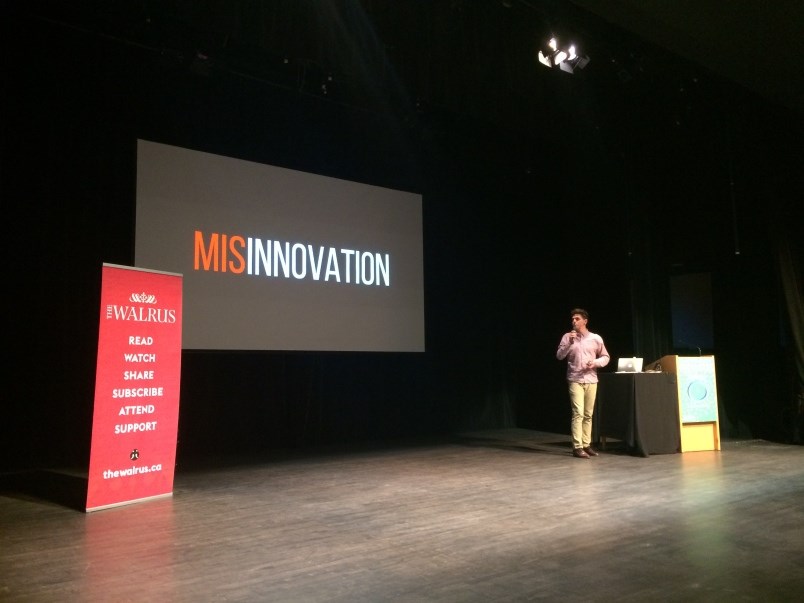For Cheeying Ho, millennials aren’t a lazy, self-absorbed and entitled generation — they’re innovators.
At the Maury Young Arts Centre on Saturday (Oct. 22), the executive director of the Whistler Centre for Sustainability argued that the “millennial mindset” blends seemingly opposing ideas to disrupt business-as-usual and create entirely new concepts. Her examples: social enterprises, combining travel for work and leisure (to create “bleisure,” she said) and viewing diet as a way to stay healthy, not to lose weight.
“Even though we may think of millennials as being self-absorbed and conspicuous in everything they do, there’s some pretty interesting characteristics we can describe that are conducive to changing the world,” she said.
Ho was one of seven speakers to offer a seven-minute talk on the topic of innovation as part of The Walrus Talks, spearheaded by the national magazine and presented by Quest University. The talks included everything from how the Tsawwassen First Nation implemented С����Ƶ’s first urban treaty to the way a young entrepreneur used waste from breweries to grow mushrooms and then animal feed — all with the common thread of innovating.
For her part, Ho said the millennial mindset isn’t exclusive to a single generation — it’s an innovative approach that everyone can use. ��
“How does the millennial mindset think about work and money? It’s no longer black and white like previous generations. Millennials are more careful about taking on too much debt and spending frivolously. They’re motivated more by experiences than stuff and they’re socially conscious. They shop and buy products and services from businesses that prioritize social causes that align with theirs, including the environment.”
She concluded by offering a rundown of some of the social enterprises — many of which participated in the centre’s Social Venture Challenge earlier this year — in the Sea to Sky corridor like Dooshi, a company that uses restaurant scraps to make pet treats, and Ski Heaven, which uses old skis to create art.
Rich Wildman, who teaches chemistry and water science classes at Quest, was another speakder from the Sea to Sky corridor. Wildman’s innovation: doing away with traditional grades in favour of “narrative evaluations” in which students are graded on their overall participation in the course. That, he said, prompted him to discover just how bad Canadians can be at promoting themselves.
“To succeed in my new system, students need to show off what they know,” he said. “Is this a problem? Am I forcing them to brag?”
He said as someone who comes from “cultures in which bragging is no big deal” (the U.S.), he has realized that Canadians could be impeding their success — for example by failing to tout accomplishments at job interviews — by refusing to “brag.”
“The social stigma against bragging is so strong that it prevents non-judgmental, meaningful exchanges about ourselves,” he said. “I set out to deemphasize grading in my courses to invest in students’ intrinsic desire to learn, but my innovation of grading with narrative evaluations is also training my students to navigate the difficult social balance between bragging and reporting honestly about who they are.”
To watch the talks visit youtube.com/user/walrustelevision/videos.




